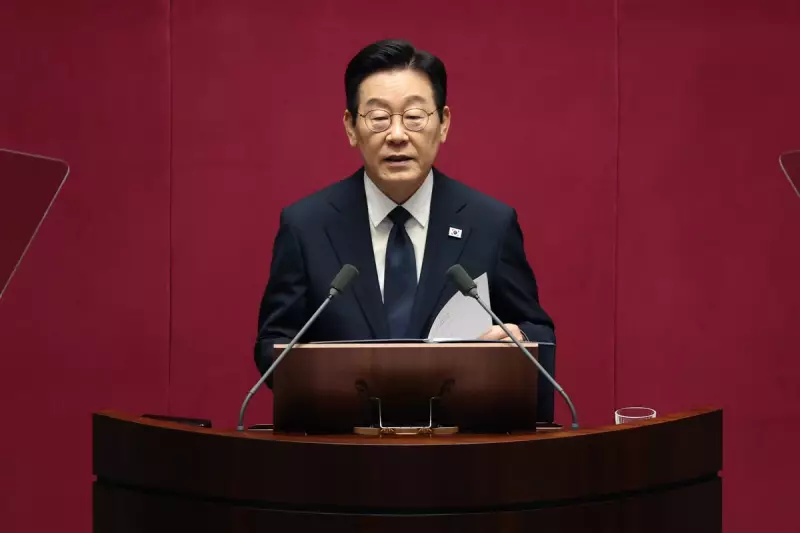
In a significant move to bolster its home economy, Samsung Electronics has joined other South Korean corporate giants in announcing colossal new domestic investment plans. This comes just days after Seoul finalised a crucial trade agreement with the United States.
Major Investment Pledges Following US Tariff Agreement
The announcements were made during a meeting on Sunday 16 November 2025 with South Korea's President, Lee Jae Myung. President Lee convened the business leaders to address concerns that the new US trade deal might lead companies to prioritise American investments at the expense of domestic spending.
This meeting followed the finalisation of a trade pact with the US, where Seoul committed to a $350 billion investment in US industries. In return, the Trump administration agreed to avert its highest tariffs. The deal includes a reduction of US tariffs on South Korean cars and auto parts from 25% to 15%, and guarantees that future tariffs on South Korean semiconductors will be on terms no less favourable than those for competitors.
Samsung's Multi-Trillion Won Domestic Push
Samsung Electronics, a global leader in computer chips, unveiled the most ambitious plan. The company pledged to invest 450 trillion won (£310 billion) over the next five years to expand its domestic operations.
A key part of this strategy involves constructing another production line at its Pyeongtaek manufacturing hub. This new facility, scheduled to begin operations in 2028, is a direct response to soaring global semiconductor demand driven by artificial intelligence. Samsung stated the expansion is crucial for securing additional production capacity for anticipated mid- to long-term memory chip needs.
Beyond chip manufacturing, Samsung also plans to build AI data centres in the country's southwest South Jeolla Province and the southeastern city of Gumi. This initiative is designed to support government efforts to bridge the development gap between the greater Seoul metropolitan area and other regions.
Broad-Based Corporate Commitment
The investment wave is not limited to Samsung. Hyundai Motor Group, South Korea's largest automaker, declared it will invest 125 trillion won (£86.3 billion) from 2026 to 2030. This capital will fuel domestic research and development, accelerating advancements in new technologies like AI, robotics, and self-driving cars.
Other major players also stepped up. SK Group, another semiconductor powerhouse, plans to invest at least 128 trillion won (£88.3 billion) domestically through 2028, with a sharp focus on AI. Shipbuilders Hanwha Ocean and HD Hyundai similarly announced plans to increase their domestic investments, even as they remain central to South Korea's $150 billion commitment to boost the US shipbuilding industry.
In the meeting, President Lee acknowledged the business sector's role in negotiating the US trade deal but urged them to maintain strong domestic investments to allay fears of a spending shift to America. He confirmed his government is exploring policy measures, including regulatory easing, to create a more favourable business environment.
SK Chair Chey Tae-won highlighted that the finalisation of trade talks with the US reduces market uncertainties, thereby paving the way for more confident and bold domestic investment. The US-South Korea agreement caps South Korean investments in non-shipbuilding US industries at $20 billion per year to prevent financial instability.





